Welcome back to Around the Precinct, the weekly blog from the Alfred Research Alliance. The work at this precinct never stops, so in this bumper first edition for 2021 we’ll be bringing you up to date with just some of what’s been going on over the past few weeks. May the year ahead be a good one for you all…
ALFRED HEALTH
Removing distance as a barrier for sexual health screening
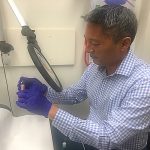
A network of bulk-billed GP sexual health clinics is reducing the tyranny of distance and improving access to screening for people in the outer areas of Melbourne. The new model, known as the Victorian Sexual Health Network (VSHN) is being run by Alfred Health’s Melbourne Sexual Health Centre (MSHC), and is already operating at three GP clinics. Read more…
Fresh air for a fresh year

The thought of missing out on many years with those he loves was more than enough for Vincent Sun to ditch smoking and now he’s urging others to follow in his footsteps. After a number of failed attempts, Vincent sought professional help from The Alfred’s Smokefree clinic, who tailored a quitting plan and supported him with strategies to stay on track…and he hasn’t touched a cigarette for almost a year! Read more…or contact the Quitline on 137848 to start your smoke-free journey.
Experts concerned with spike in online gambling
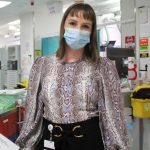 A large spike in online gambling has experts at The Alfred concerned that many problem gamblers are avoiding seeking help and are suffering in silence. Dr Rebecca Hope from the Alfred Mental Health and Gambling Harm Program said that gambling numbers rose by 60 per cent during last year’s lockdown, despite the closure of casinos, with more people going online. Read more here or, if you or someone you know needs help, visit Gamblers’ Help.
A large spike in online gambling has experts at The Alfred concerned that many problem gamblers are avoiding seeking help and are suffering in silence. Dr Rebecca Hope from the Alfred Mental Health and Gambling Harm Program said that gambling numbers rose by 60 per cent during last year’s lockdown, despite the closure of casinos, with more people going online. Read more here or, if you or someone you know needs help, visit Gamblers’ Help.
Weighty goals won’t help shed the COVID kilos
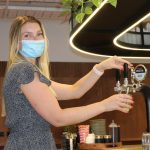
COVID kilos really are a ‘thing’ – and Alfred Health dietitian Angie Passater is urging people to ring in the new year with fresh, healthier eating habits to help shed the kilos picked up in lockdown. “Clinically speaking we know patients are gaining weight, which is very concerning,” she said, adding that the best way to commit to a healthier diet is to set small, sustainable goals – and reach out to your GP or a dietician if you need some support. Read more…
Don’t get burned this summer
 What started as a fun night with friends quickly turned into months of painful rehab for 19-year-old Michael Robertson, after he attempted to get a drum fire started with petrol. Alfred Health Victorian Adult Burns Unit Director Associate Prof Heather Cleland said Michael’s story is all too common, warning summer revellers and holiday makers to stay safe…and never use accelerants to start a campfire or bonfire. Read more…
What started as a fun night with friends quickly turned into months of painful rehab for 19-year-old Michael Robertson, after he attempted to get a drum fire started with petrol. Alfred Health Victorian Adult Burns Unit Director Associate Prof Heather Cleland said Michael’s story is all too common, warning summer revellers and holiday makers to stay safe…and never use accelerants to start a campfire or bonfire. Read more…
Biobank brings hope for Demi
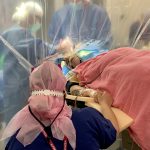 This year, 22-year-old Demi Lawson has not only faced a global pandemic, but a diagnosis of brain cancer, an awake craniotomy (brain surgery) – and has been learning to live with the death of her younger brother. During surgery at The Alfred, surgeons collected samples of her brain tumour, which Demi had consented to donate to the Alfred Brain Bio-Bank to help future researchers find a cure. Read more…
This year, 22-year-old Demi Lawson has not only faced a global pandemic, but a diagnosis of brain cancer, an awake craniotomy (brain surgery) – and has been learning to live with the death of her younger brother. During surgery at The Alfred, surgeons collected samples of her brain tumour, which Demi had consented to donate to the Alfred Brain Bio-Bank to help future researchers find a cure. Read more…
MONASH UNIVERSITY CENTRAL CLINICAL SCHOOL
Drug clinical trial improves survival for AML patients
 A global clinical trial led by Prof Andrew Wei from Monash ACBD and Alfred Health reveals life saving drug for people with acute myeloid leukaemia (AML). Almost 1000 Australians each year are diagnosed with AML, the most acute blood cancer in adults; the majority will die within two years. A landmark paper published at the end of December describes results of the Phase 3 clinical trial called QUAZAR, which showed that a drug called CC-486 improved survival rates by some 30%. Read more…
A global clinical trial led by Prof Andrew Wei from Monash ACBD and Alfred Health reveals life saving drug for people with acute myeloid leukaemia (AML). Almost 1000 Australians each year are diagnosed with AML, the most acute blood cancer in adults; the majority will die within two years. A landmark paper published at the end of December describes results of the Phase 3 clinical trial called QUAZAR, which showed that a drug called CC-486 improved survival rates by some 30%. Read more…
MS Research Australia offers vital funding for new treatments
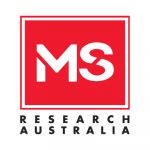
Three Monash Medicine, Nursing and Health Sciences researchers – Dr Mastura Monif, Dr Lisa Grech and A/Prof Anneke Van Der Walt – have received funding grants as part of MS Research Australia’s $2.9M funding boost, which will help uncover new ways to investigate, manage and treat multiple sclerosis (MS). MS is a complex condition of the central nervous system interferes with nerve impulses within the brain, spinal cord and optic nerves, which affects more than 25,600 people in Australia. Read more…
Protection against asthma from gut metabolism by-product
 A study into the impact of gut bacteria on the immune system has led to the discovery of two molecules that can not only provide protection in experimental models of asthma, but may reduce the severity of attacks and possibly have a beneficial role in treating the respiratory illness that is prevalent, and often fatal, in people with serious COVID-19. Prof Benjamin Marsland’s paper has now been published in Nature Immunology. Read more…
A study into the impact of gut bacteria on the immune system has led to the discovery of two molecules that can not only provide protection in experimental models of asthma, but may reduce the severity of attacks and possibly have a beneficial role in treating the respiratory illness that is prevalent, and often fatal, in people with serious COVID-19. Prof Benjamin Marsland’s paper has now been published in Nature Immunology. Read more…
MONASH PUBLIC HEALTH & PREVENTIVE MEDICINE
Meet Allen Cheng: The professor who put himself in the firing line of Victoria’s COVID-19 response
 At the height of Melbourne’s COVID-19 crisis – in mid-winter during the second wave, with hundreds of new cases a day – Prof Allen Cheng quietly volunteered as Victoria’s Deputy Chief Health Officer. Now, he’s recognised for his appearances alongside Premier Dan Andrews & his colleague, Chief Health Officer Prof Brett Sutton, in media conferences which made news around the world. Read more about the man behind the mission, and make sure you watch his Alfred Research Alliance keynote address on the crisis.
At the height of Melbourne’s COVID-19 crisis – in mid-winter during the second wave, with hundreds of new cases a day – Prof Allen Cheng quietly volunteered as Victoria’s Deputy Chief Health Officer. Now, he’s recognised for his appearances alongside Premier Dan Andrews & his colleague, Chief Health Officer Prof Brett Sutton, in media conferences which made news around the world. Read more about the man behind the mission, and make sure you watch his Alfred Research Alliance keynote address on the crisis.
BURNET INSTITUTE
COVID-19 vaccines safe – ‘bring it on’ says Burnet vaccine specialist
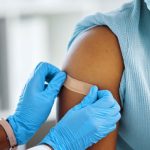 COVID-19 vaccines have been developed quickly and efficienty, due to huge investment and a global collaborative effort drawing on a range of approaches and technologies, but safety has not been compromised says Burnet’s vaccine specialist, Prof Heidi Drummer. As our only hope of a ‘post-COVID normal’, it’s a case of ‘the quicker, the better’ for the Australian rollout, she says. Read more… and catch up on all Burnet’s COVID updates at the Know C-19 Hub.
COVID-19 vaccines have been developed quickly and efficienty, due to huge investment and a global collaborative effort drawing on a range of approaches and technologies, but safety has not been compromised says Burnet’s vaccine specialist, Prof Heidi Drummer. As our only hope of a ‘post-COVID normal’, it’s a case of ‘the quicker, the better’ for the Australian rollout, she says. Read more… and catch up on all Burnet’s COVID updates at the Know C-19 Hub.
Tracking down outbreaks and causes of fever in PNG
![]() A surveillance and response tool for vector-borne disease is helping tackle the slippery problem of fever in remote areas of Papua New Guinea…and now it’s also being used for COVID-19! Burnet’s Prof Leanne Robinson is co-leading an innovative project called STRIVE which will create a real-time ‘heat map’ to track the spread of disease in a clear and accessible way. And the technology may be helpful to track the spread of SARS-CoV-2. Read more…
A surveillance and response tool for vector-borne disease is helping tackle the slippery problem of fever in remote areas of Papua New Guinea…and now it’s also being used for COVID-19! Burnet’s Prof Leanne Robinson is co-leading an innovative project called STRIVE which will create a real-time ‘heat map’ to track the spread of disease in a clear and accessible way. And the technology may be helpful to track the spread of SARS-CoV-2. Read more…
New insights into the induction of malaria antibodies
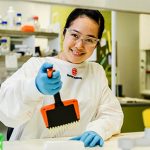
Innovative new research jointly led by Burnet and QIMR-Berghofer scientists has linked the activation of specific immune cells to the induction of protective antibodies against malaria. The research involved the unique clinical trial of human malaria infection performed in laboratory-controlled conditions in healthy Australian adults. Its findings, published in Cell Reports Medicine, will help to inform the development of effective malaria vaccines. Read more…
Insect repellents to be used to prevent new malaria infections in Myanmar

In a world-first, Burnet Institute researchers established the real-world effectiveness of repellent distribution in the context of large-scale disease prevention programs in Myanmar, and demonstrated that it can prevent a third of new malaria infections. Burnet’s Prof Freya Fowkes says ‘establishing that repellent can significantly reduce the burden of malaria is incredibly important for the region’. Read more…
New study highlights family planning needs in PNG
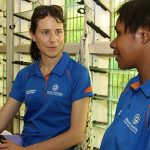 A major new study by Burnet Institute researchers and partners in Papua New Guinea (PNG) has identified the key needs and priorities for family planning and reducing unintended pregnancies among pregnant women in PNG. The study highlights an urgent need for targeted services and strategies to improve knowledge, uptake, access and male partner involvement says Dr Liz Peach, study lead author from the Healthy Mothers, Healthy Babies team.
A major new study by Burnet Institute researchers and partners in Papua New Guinea (PNG) has identified the key needs and priorities for family planning and reducing unintended pregnancies among pregnant women in PNG. The study highlights an urgent need for targeted services and strategies to improve knowledge, uptake, access and male partner involvement says Dr Liz Peach, study lead author from the Healthy Mothers, Healthy Babies team.
LA TROBE UNIVERSITY
Funding to give hope to MS sufferers
 A significant grant from MS Research Australia will help La Trobe neuroscientist Dr Jacqueline Orian and her co-investigators, Prof Karlheinz Peter and Prof Xiaowei Wang from Baker Institute, delve deeper into the role blood platelets might play in causing symptoms of MS, including inflammation and nerve damage. It is hoped better understanding could lead to therapies wich may delay progression of the disease. Read more…
A significant grant from MS Research Australia will help La Trobe neuroscientist Dr Jacqueline Orian and her co-investigators, Prof Karlheinz Peter and Prof Xiaowei Wang from Baker Institute, delve deeper into the role blood platelets might play in causing symptoms of MS, including inflammation and nerve damage. It is hoped better understanding could lead to therapies wich may delay progression of the disease. Read more…
BAKER HEART & DIABETES INSTITUTE
Study to identify which genes are important in driving genomic risk of coronary artery disease

Baker Institute researchers will lead a pivotal study that aims to understand which genes are important and why in driving genomic risk of coronary artery disease, the leading cause of death in Australia. The study, led by A/Prof Anna Calkin & Prof Mike Inouye, with Dr Adam Butterworth from the University of Cambridge, could lead to fundamental changes in the way we diagnose, treat and prevent coronary artery disease.
Identifying gene that regulates fat storage could help prevent heart disease & diabetes
 Scientists at the Baker Institute have discovered a gene that is important in regulating the storage of dangerous fat to prevent it becoming toxic and driving diabetes and heart disease. A/Prof Brian Drew says while storing fat is a normal and necessary function, excess fat stored in organs can become toxic and drive chronic diseases. And, with 65% of Australian adults either overweight or obese, tackling the issue is critical. Read more…
Scientists at the Baker Institute have discovered a gene that is important in regulating the storage of dangerous fat to prevent it becoming toxic and driving diabetes and heart disease. A/Prof Brian Drew says while storing fat is a normal and necessary function, excess fat stored in organs can become toxic and drive chronic diseases. And, with 65% of Australian adults either overweight or obese, tackling the issue is critical. Read more…
New cancer drug could also treat heart disease

Scientists have repurposed a cancer drug to show it can help reduce atherosclerosis – the build-up of fatty plaques on artery walls – which can lead to heart attack and stroke, and which is far more common in people with diabetes. Baker’s Prof Andrew Murphy says studies show the drug, which causes physiological cell death, reduced the the characteristic elevated levels of platelets in the blood of mice to more normal levels, decreasing atherosclerosis and reducing the risk of dangerous clots. Read more…
NUCLEUS NETWORK
Participants sought to ‘Become a Lifechanger’
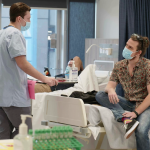 From a new vaccine through to treatments to manage cardiovascular conditions, diabetes, or Alzheimer’s; clinical studies play a vital role in transforming discoveries into treatments for patients and the broader community. Nucleus Network is currently running a campaign to recruit participants for paid clinical trials, saying people who participate play a real role in advancing medicine and improving lives. To become a Lifechanger register here , or click here to find out more about the organisation’s current studies.
From a new vaccine through to treatments to manage cardiovascular conditions, diabetes, or Alzheimer’s; clinical studies play a vital role in transforming discoveries into treatments for patients and the broader community. Nucleus Network is currently running a campaign to recruit participants for paid clinical trials, saying people who participate play a real role in advancing medicine and improving lives. To become a Lifechanger register here , or click here to find out more about the organisation’s current studies.
